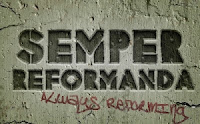By Dr. R. Scott Clark - Posted at The Heidelblog:
Let’s say that a pastor decided that he wanted to reform the worship services of his congregation toward the earlier Reformed pattern of singing God’s Word without musical instruments. How would he go about it? Though we’re working with a concrete example, this is really a larger question: how does a session/consistory lead a congregation toward Reformation? Where does the leadership begin? How long does might it take? How can a session/consistory lead a congregation to Reformation without fracturing the congregation in the process?
Prayer
Reformation is a spiritual business. It’s not just politics, i.e., the struggle for control, the struggle to get one’s own way. Sometimes when people write about making changes in church they forget prayer and go directly to strategizing. That is ironic because nothing is more spiritual than the act of worship. We need to begin by calling on our Triune God in the name of the Spirit, for the Holy Spirit to work in us and ahead of us.
All believers, those advocating reform, those opposed, and those indifferent, need to be sanctified, i.e., we all need to die to self and to be made alive to Christ. Prayer is one of the three means by which God makes believers more like Christ. We need to pray for grace, for wisdom, for humility, and perhaps most especially patience. We should also pray that God the Spirit would work in the hearts and minds of the congregation, that body would be teachable and would desire to gather each Lord’s Day to seek principally for God’s glory and the edification of the church. For some (perhaps for all of us to one degree or another) this means genuinely embracing the principle that God’s self-disclosure in Scripture is the sole authority for the practice of the church in public worship (sola Scriptura).
Let’s say that a pastor decided that he wanted to reform the worship services of his congregation toward the earlier Reformed pattern of singing God’s Word without musical instruments. How would he go about it? Though we’re working with a concrete example, this is really a larger question: how does a session/consistory lead a congregation toward Reformation? Where does the leadership begin? How long does might it take? How can a session/consistory lead a congregation to Reformation without fracturing the congregation in the process?
Prayer
Reformation is a spiritual business. It’s not just politics, i.e., the struggle for control, the struggle to get one’s own way. Sometimes when people write about making changes in church they forget prayer and go directly to strategizing. That is ironic because nothing is more spiritual than the act of worship. We need to begin by calling on our Triune God in the name of the Spirit, for the Holy Spirit to work in us and ahead of us.
All believers, those advocating reform, those opposed, and those indifferent, need to be sanctified, i.e., we all need to die to self and to be made alive to Christ. Prayer is one of the three means by which God makes believers more like Christ. We need to pray for grace, for wisdom, for humility, and perhaps most especially patience. We should also pray that God the Spirit would work in the hearts and minds of the congregation, that body would be teachable and would desire to gather each Lord’s Day to seek principally for God’s glory and the edification of the church. For some (perhaps for all of us to one degree or another) this means genuinely embracing the principle that God’s self-disclosure in Scripture is the sole authority for the practice of the church in public worship (sola Scriptura).
